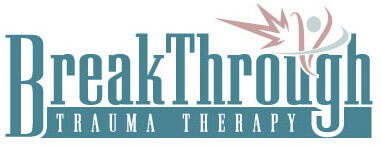Avoidance and Trauma: Why it happens and how therapy can help!
Have you gone through a traumatic event and are trying  your best to avoid thoughts, feelings, and memories of the event? You are not alone. Everyone has or will experience trauma at some point in their lifetime. Statistics show 70% of adults have experienced trauma at least once in their life. Of these, 30% have had multiple traumatic experiences. You can overcome this ordeal with trauma therapy.
your best to avoid thoughts, feelings, and memories of the event? You are not alone. Everyone has or will experience trauma at some point in their lifetime. Statistics show 70% of adults have experienced trauma at least once in their life. Of these, 30% have had multiple traumatic experiences. You can overcome this ordeal with trauma therapy.
After a tragedy, people tend to try and forget their experience, a phenomenon known as avoidance. The pain, fears, vulnerability, and hurt from the ordeal are better ignored or suppressed into oblivion. However, nobody has ever successfully healed from trauma by forgetting. Trauma counseling is the best way to overcome the psychological impact of adversity.
Avoidance is a destructive coping habit for trauma. It may seem to work temporarily, but eventually, it causes significant damage to your mental health. Avoidance is a symptom of trauma-related mental conditions like post-traumatic stress disorder (PTSD). A trauma counselor guides you to identify maladaptive behaviors like avoidance and teaches you beneficial techniques, skills, and behavior to adopt.
What is Avoidant Coping
Avoidant coping entails active minimization or evading memories, thoughts, feelings, or
situations relating to the traumatic event. It offers short-term relief and ultimately increases your
stress and distress. Avoidance triggers severe anxiety, depression, and PTSD.
You can overcome avoidant coping through trauma therapy. There are different forms of trauma
counseling depending on your psychological issues.
PTSD Therapy
Your PTSD therapist administers counseling relating to post-traumatic stress, which develops
from untreated trauma. In PTSD treatment, you gain an increased understanding of the trauma
and how it affects your life. Your PTSD therapist also teaches you beneficial techniques and
skills to help you regulate your thoughts, emotions, and behaviors. PTSD counseling is effective
long-term and beneficial beyond the confines of treatment.
Childhood Trauma Therapy
Childhood trauma counseling focuses on treating trauma experienced when you were a child.
You can negatively adapt to traumatic experiences from childhood into adulthood. In this form of
trauma treatment, the trauma therapist helps you identify childhood traumas and how they
influence your thought, emotional, and behavioral patterns. They then equip you with techniques
and skills to undo your learned habits and form beneficial ones.
Avoidant Coping Behaviors
Situational Avoidance
The anxiety, depressive mood, pain, defeat, or anger after remembering or relieving a traumatic
experience can force you to avoid places, people, and traumatic issues. Unfortunately, this
leaves things unresolved and only causes your intense negative feelings to fester, looking for an
outlet.
It manifests as
● Canceling plans because of deep-seated insecurities, like a beach party because
somebody body shamed you
● Not showing up for a doctor's appointment because you worry about the findings.
● Fearing commitments because of a partner's emotional or physical wounds
● Cutting off loved ones because of unresolved conflicts.
A trauma counselor increases your awareness of these behavioral patterns and their associated
thoughts and emotions. They also guide you into forming new ways of approaching situations.
For instance, the trauma therapist will probe why you feel insecure enough to cancel or not
attend a social event. Through self-reflection, you can identify the anomaly in your thoughts and
feelings and use logic to counter their influence on your behavior.
Denial
Instead of facing reality and the burden of learning from a traumatic experience, denial provides
an easy way out. Denial is a defensive mechanism to cope with intense thoughts, feelings, and
events. Instead, you reassure yourself concerning the negative evidence before you. For
example, someone in an abusive relationship can convince themselves they are responsible for
the ill-treatment instead of acknowledging their partner's vice. Another person can use humor to
mask their trauma.
Denial can also be a consequence of fear. When you are afraid of change, starting over, finding
a new job, friends, or life, you can deny your reality by suppressing past or ongoing trauma.
Unfortunately, denial normalizes the problem. PTSD counseling helps you identify these coping
behaviors and resolve the trauma before it does more harm to your mental and physical health.
Distraction
Distraction diverts your attention from the trauma to something that provides temporary relief.
You may use work, drugs, promiscuity, partying, relationships, or habits as distractions from
deep-sitted pain.

Unfortunately, distractions can become destructive habits, making you dependent on them for life. They become the new drug of choice, keeping you high enough to forget your problems.
You can overcome this behavior with trauma therapy. Your trauma counselor lets you question your inclination to certain behaviors and understand why you do some things. Knowledge coupled with therapy techniques improves trauma symptoms and eventually frees you from the trauma burden.
Addiction
Similar to distractions, addictions can provide temporary relief. However, they also increase
your dependence and tolerance to your substance or behavior of choice. Addictive substances
and behavior bring short-term comfort at a high cost. They rewire the reward pathway
responsible for happiness, satisfaction, peace, and pleasure by making it rely on substance or
behavior to activate.
Trauma inhibits this pathway. Psychoactive substances and behavior can temporarily activate
and sustain it. However, the intensity of their action on the reward pathway is extreme. The
brain learns to tolerate these potent stimulation levels. It also triggers severe withdrawals to
keep you committed to the addiction. You can be addicted to drugs, medication, alcohol, or
tobacco. Behavioral addictions include overindulgence in comfort or sugary foods, gambling,
promiscuity, or gaming.
Trauma counseling techniques are equally psychoactive. They forge a new pathway that is not
dependent on substance or maladaptive behavior. For instance, in PTSD counseling, you learn
to face and disempower the trauma, which in turn, renders useless your dependence on
substances or behaviors as a way of escape.
Procrastination
Postponing addressing trauma prevents healing. You end up carrying a burden without any form
of relief. Trauma becomes your constant companion. Procrastination also permeates other
areas of your life. It can be the reason behind your missed deadlines or lack of commitment to
responsibilities.
Trauma wears down your zeal for life. It makes getting out of bed, brushing your teeth, or
putting on clothes an unbearable burden. Procrastination feeds on this lethargy. It temporarily
provides relief from mundane tasks required for everyday living.
Surrender
Sometimes you may not have the will to fight for your mental sanity. Therefore, you give in to
the viciousness of the trauma. Resigned acceptance makes you helpless. It robs you of a
peaceful future. It makes you hopeless toward healing or relief. You accept your fate instead of
finding a way out. Childhood trauma and PTSD have this effect on people.
For instance, you can resolve that you are unworthy of love after a rape incident. A spouse can
refuse to leave their abusive partner because they have accepted that they are unlovable.
Another form of resigned surrender is accepting systemic injustices and considering
accommodating them because the cost of fighting for equality is demanding.
You can find healing through PTSD counseling and childhood trauma therapy. A PTSD
counselor raises awareness of the trauma implications exposed through your behavior and its
destructive nature. You also learn to identify, manage, avoid, or face triggers.
Therapy: The Effect of Trauma Avoidance on The Brain
Trauma disorganizes three brain parts, the amygdala, hippocampus, and prefrontal cortex.
The Amygdala
The amygdala is the stress response center of the brain. It assembles stimuli through the
nerves from the body, processes, decodes, and attaches meaning to the information. When the
amygdala senses danger, it activates the stress response, better known as the fight or flight
response or anxiety. During a traumatic event, the amygdala becomes overstimulated and
malfunctions, creating faulty interpretations of the event.
The amygdala will remain hyperactive and hypervigilant after this event unless the trauma gets
resolved. It interprets familiar stimuli relating to the trauma, triggered by your thoughts,
surroundings, feelings, or phantom stimulation as threats. The amygdala also retrieves the initial
faulty information, now contained in your memory, and prematurely launches the stress
response.
Unfortunately, you could be sleeping, walking, or working, when the amygdala decides you are
in danger. The anxiety is usually intense, interfering with daily living. Triggers occur as
● Intrusive memories – intense emotions and negativity accompany these sudden and
uncontrollable recollections.
● Recurrent thoughts – persistent negative thoughts ruminating through your mind
concerning the traumatic event
● Nightmares – recurrent dreams about the trauma linger despite your best efforts to
ignore or avoid triggers.
The Hippocampus
The hippocampus’s role is in learning and memory. It records and stores sequential events as
they occur. During a traumatic event, the hippocampus stores the erroneous information
packaged by the amygdala, including emotions and moods. The size of the hippocampus
reduces after a traumatic event. It retrieves this information every time the amygdala responds
to the traumatic event.
The Prefrontal Cortex
Your ability to rationalize thoughts and emotions happens in the prefrontal cortex. When you get
discouraged, the prefrontal cortex enables you to find facts to counter your negative
perspective. Trauma dulls down activity in this area of the brain. When your amygdala sends out
false danger alarms, you cannot use logic or rationalize the reaction because of the
underperforming prefrontal cortex.
The Downside of Avoidance in Trauma
Each time you relive the trauma, your brain forges and fortifies a pathway that increases your
vulnerability to triggers. Each subsequent experience leaves you worse off. Avoidance makes
addressing the initial trauma that led you down this hole impossible. It applies a bandaid to an
acute wound. The mental and physiological damage continues despite your best effort to
minimize the trauma impact, downplay its significance in your life, or ignore its effect.
The impact of trauma varies from person to person. Trauma therapy is the best place to analyze
the implication of trauma in your life. Your trauma counselor provides a personalized approach
that is specific to your condition.
Avoidance Keeps You From Seeking Trauma Therapy
Trauma thoughts, emotions, frustrations, and  accompanying behaviors persist because they are wired in your brain. The impact is too complex to ignore or wish away. Avoidance shifts your energy and concentration away from the root cause to periodical obsessions that require compulsions to dull down.
accompanying behaviors persist because they are wired in your brain. The impact is too complex to ignore or wish away. Avoidance shifts your energy and concentration away from the root cause to periodical obsessions that require compulsions to dull down.
For instance, you may resolve to drink alcohol each time you get intrusive thoughts or isolate yourself from the world for fear of subsequent attacks. Instead, you could look for a trauma therapist to piece your memory, learn and grow from the trauma, face and subdue your fears, manage triggers, and heal.
Avoidance Keeps You in a Vicious Cycle
There is no escaping the cyclic nature of avoidance. Its relief is short-term. You can only sustain
this comfort by continuously forming your preferred patterns and habits. The rituals add to your
anxiety and trauma burden instead of dispelling them.
Avoidance and the Rebound Effect
Deliberate thought and emotional suppression only augments your desire to think and feel. The
phenomenon is known as the rebound effect. The more you avoid thinking or feeling things
relating to the traumatic event, the more you are bound to encounter those thoughts and
emotions.
Thus, avoidance is itself a trigger of your trauma because it empowers the stimulants. It makes
you a slave of your misery. You are better off facing your fears and taking control of your
thoughts.
Embrace Trauma Counseling
Get connected to a trauma therapist
Coping mechanisms without the guidance of a trauma therapist can worsen your trauma. For
instance, you may vent to friends and loved ones without finding a plausible solution to the
trauma. The problem is only half-solved when you talk out your feelings.
A trauma counselor helps you deal with trauma comprehensively. They also provide support,
accountability, and a listening ear. They will empower you to face your trauma, deal with the
source of your trouble, and undo destructive patterns and habits. Begin your journey to a
trauma-free life today.
Complete a connect form here to get connected with a therapist or you can call 561-247-5550. We look forward to hearing from you.
Click here for more on Trauma Therapy.


